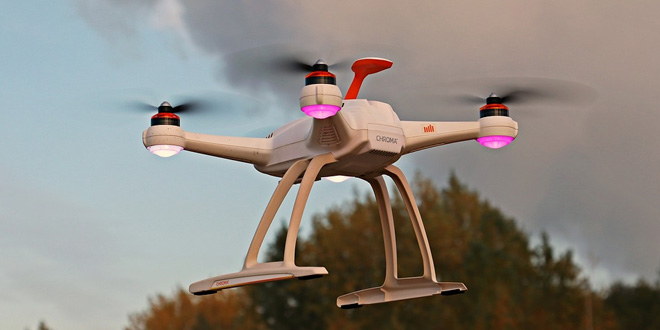Highlights
- The study on usage of drones started in 2020: Chairman, COVID working group
- IIT, Kanpur has already submitted their study on drones: Sources
- Drones can be helpful in tribal, north eastern and hilly areas: Chairman
New Delhi: Drones may soon be seen delivering vaccines and life-saving drugs in remote areas of the country that will also help to ramp up the vaccination drive, said NK Arora, Chairman, COVID working group and Chief, National Technical Advisory Group on Immunisation (NTAGI). India is easing restrictions on drone flights to facilitate their operations over a wider area, making it feasible for operators to use them for purposes such as delivery. The Indian Council of Medical Research (ICMR) is conducting a feasibility study of COVID-19 vaccine delivery using drones in collaboration with the India Institute of Technology, Kanpur. According to the sources, IIT, Kanpur has already submitted their study on drones.
India was preparing for this right from last year, this study was initiated sometime later part of the second half of 2020, when it was thought that reaching up to remote areas whether these are tribal areas or even north eastern or hill areas where taking vaccine take a long time particularly cold chain has to be maintained and amount is very small as very few people stay there, said Dr NK Arora, Chief, National Technical Advisory Group on Immunisation (NTAGI).
“This study was done in partnership with various IIT institutions to see its feasibility, I am happy that the results are available. We should reach up to those areas where its difficult to reach and drones can be used for delivery of vaccines. This study also shows that life saving drugs, similar treatment modalities can also be delivered in short time in remote areas or inaccessible areas”, he added.
“It is the first death linked to COVID vaccination due to anaphylaxis. It re-emphasises the need to wait for 30 minutes after receiving jab. Most of the anaphylactic reactions occur during this period. Timely treatment can prevent deaths, said Dr NK Arora.
(Except for the headline, this story has not been edited by NDTV staff and is published from a syndicated feed.)
NDTV – Dettol Banega Swasth India campaign is an extension of the five-year-old Banega Swachh India initiative helmed by Campaign Ambassador Amitabh Bachchan. It aims to spread awareness about critical health issues facing the country. In wake of the current COVID-19 pandemic, the need for WASH (Water, Sanitation and Hygiene) is reaffirmed as handwashing is one of the ways to prevent Coronavirus infection and other diseases. The campaign highlights the importance of nutrition and healthcare for women and children to prevent maternal and child mortality, fight malnutrition, stunting, wasting, anaemia and disease prevention through vaccines. Importance of programmes like Public Distribution System (PDS), Mid-day Meal Scheme, POSHAN Abhiyan and the role of Aganwadis and ASHA workers are also covered. Only a Swachh or clean India where toilets are used and open defecation free (ODF) status achieved as part of the Swachh Bharat Abhiyan launched by Prime Minister Narendra Modi in 2014, can eradicate diseases like diahorrea and become a Swasth or healthy India. The campaign will continue to cover issues like air pollution, waste management, plastic ban, manual scavenging and sanitation workers and menstrual hygiene.
[corona_data_new]



















